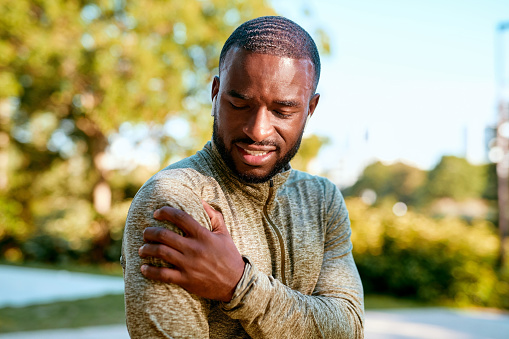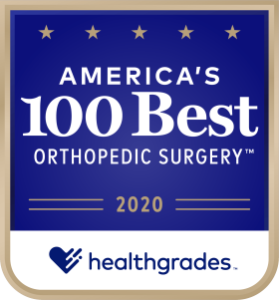 Here is what an orthopedic can do for shoulder pain. If you are experiencing shoulder pain and are unsure what to do or where to go for help, consider a visit to your local orthopedics office. A trained orthopedic surgeon will help you define the cause of your shoulder pain and lead you to a solution that will bring you relief. There are many potential causes for shoulder pain and each requires a different remedy.
Here is what an orthopedic can do for shoulder pain. If you are experiencing shoulder pain and are unsure what to do or where to go for help, consider a visit to your local orthopedics office. A trained orthopedic surgeon will help you define the cause of your shoulder pain and lead you to a solution that will bring you relief. There are many potential causes for shoulder pain and each requires a different remedy.
SHOULDER STRAIN
There are many different muscles in the shoulder that can become strained or pulled from overuse or improper use. It is possible to strain your deltoid or rotator cuff muscles or even your bicep, tricep, or pectoralis.
Shoulder strain is typically treated by resting the muscles. If the pain becomes uncomfortable, nonsteroidal, anti-inflammatory medications can help it subside. Physical therapy can help reduce persistent shoulder strain issues.
SHOULDER ARTHRITIS
 Arthritis is inflammation of a joint and occurs in shoulders when the cartilage on the ball end of the joint wears down and rubs against the socket. This type of arthritis is known as osteoarthritis and is more casually referred to as “wear-and-tear” arthritis.
Arthritis is inflammation of a joint and occurs in shoulders when the cartilage on the ball end of the joint wears down and rubs against the socket. This type of arthritis is known as osteoarthritis and is more casually referred to as “wear-and-tear” arthritis.
Unfortunately, once this cartilage has worn down, it cannot be regenerated or repaired. Shoulder arthritis pain can only be managed. Maintaining an active lifestyle and introducing regular physical therapy regimens into your daily routine will help manage shoulder arthritis. If your shoulder joint is completely bare of cartilage, a complete shoulder replacement surgery might be a sensible solution.
ROTATOR CUFF INJURY
The rotator cuff in your shoulder is a group of muscles surrounding the joint socket that keep your arm bone firmly in place. Pain in your rotator cuff is one of the most common types of shoulder issues for those over 30 and can develop in one of two ways. It can develop through inflammation when muscles become irritated or inflamed or through a partial or full muscle tear.
Treatment options for rotator cuff inflammation include rest, ice, anti-inflammatory medications, corticosteroid injections, and/or physical therapy. A combination of treatment regimens will typically provide the best solution. A partial rotator cuff can often be treated with similar treatment methods, however a full tear will require orthopedic surgery.
LABRUM TEAR
 Your shoulder labrum functions similarly to the rotator cuff in that it keeps the ball of the joint in place, however the labrum is a thick piece of tissue that forms a ring around the glenoid cavity. If this thick cartilage is torn, it can cause excessive and lingering pain.
Your shoulder labrum functions similarly to the rotator cuff in that it keeps the ball of the joint in place, however the labrum is a thick piece of tissue that forms a ring around the glenoid cavity. If this thick cartilage is torn, it can cause excessive and lingering pain.
Most labrum tears can be treated with rest, ice, and physical therapy. If the tear is significant, arthroscopic surgery is completed to remove the torn piece of cartilage.
Located right in the middle of Detroit and Ann Arbor, Great Lakes Orthopaedics offers highly specialized orthopedic treatments to combat your shoulder and other bone, joint, and muscle pain issues. With four board certified orthopedics surgeons onsite, we can help you manage or fix any of your bone, joint, and muscle complications. Give us a call today to schedule your next appointment!




